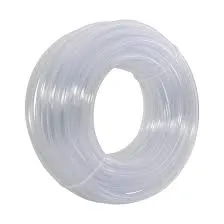Dec . 04, 2024 19:01 Back to list
High-Density Polyethylene Pipes for Sustainable Agricultural Irrigation Solutions
The Benefits of HDPE Agricultural Pipes in Modern Farming
High-Density Polyethylene (HDPE) pipes are revolutionizing the agricultural sector by providing farmers with efficient and durable solutions for irrigation and water management. As agriculture faces the challenges of water scarcity and the need for sustainable practices, HDPE pipes have emerged as a vital component in modern farming techniques.
Understanding HDPE Pipes
HDPE pipes are made from high-density polyethylene, a type of plastic known for its strength, durability, and resistance to chemicals. These pipes are lightweight, flexible, and easy to install, making them an ideal choice for various agricultural applications. They are available in different sizes and thicknesses, allowing farmers to choose the most suitable option for their specific needs.
Advantages of Using HDPE Pipes in Agriculture
1. Durability and Longevity One of the most significant advantages of HDPE pipes is their exceptional durability. They can withstand harsh environmental conditions, including UV exposure, extreme temperatures, and corrosive soils. This durability translates to a longer lifespan compared to traditional piping materials, reducing the frequency and cost of replacements.
2. Cost-Effective Solution While the initial investment in HDPE pipes might be higher than that of conventional materials, the long-term savings are substantial. Their durability leads to lower maintenance and replacement costs over time. Additionally, because they minimize water loss through leaks, farmers can conserve water, further reducing costs related to irrigation.
hdpe agriculture pipe

3. Enhanced Water Management Effective water management is crucial in agriculture, especially in regions prone to drought. HDPE pipes provide a reliable means of transporting water for irrigation systems, ensuring that crops receive adequate hydration. Their smooth inner surfaces reduce friction, allowing for efficient water flow and distribution.
4. Flexibility and Versatility HDPE pipes can be easily customized to meet the unique requirements of different agricultural applications. They can be used in drip irrigation systems, sprinkler systems, and even for transporting fertilizers and chemicals. Their flexibility also means that they can easily navigate through the contours of the land, making them suitable for various terrains.
5. Environmental Benefits With increasing focus on sustainability, HDPE pipes offer an eco-friendly alternative to traditional materials. They are recyclable and can be manufactured with minimal environmental impact. Moreover, by improving water management, these pipes contribute to better conservation of water resources, essential in the face of climate change.
6. Easy Installation The lightweight nature of HDPE pipes simplifies the installation process, requiring less manpower and equipment. Their flexibility allows for easy handling and installation even in challenging terrain, which can save farmers time and reduce labor costs.
Conclusion
The adoption of HDPE agricultural pipes is a game-changer for farmers looking to enhance their irrigation systems and improve water management practices. With their myriad benefits, including durability, cost efficiency, and environmental friendliness, HDPE pipes are well-suited to meet the demands of modern agriculture. As the industry continues to evolve, the use of innovative materials like HDPE will play a crucial role in ensuring sustainable farming practices that can withstand the challenges of a changing climate. By integrating HDPE pipes into their operations, farmers can not only boost productivity but also contribute to a more sustainable future in agriculture.
-
High-Quality PPR Pipes and Fittings Durable ERA PPR & PVC PPR Solutions
NewsJul.08,2025
-
Black HDPE Cutting Board - Durable, Non-Porous & Food Safe HDPE Plastic Cutting Board
NewsJul.08,2025
-
High-Quality CPVC Panel Durable HDPE & PVC Panels Supplier
NewsJul.08,2025
-
Double PE Welding Rod Supplier - High Strength, Durable & Versatile Welding Solutions
NewsJul.07,2025
-
High-Quality PVC-O Pipe Supplier Durable 75mm PVC Pipe & Connections Leading PVC Pipe Company
NewsJul.07,2025
-
HDPE Drainage Pipe Supplier – Durable & Corrosion-Resistant Solutions
NewsJul.06,2025

